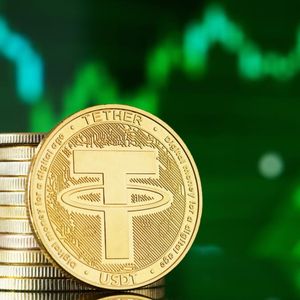President Donald Trump has made high-profile campaign promises to champion U.S. Bitcoin mining. However, the nation’s leading publicly traded crypto miners are reporting steep losses for the first quarter of 2025. According to analysts’ estimates, seven of the eight largest U.S.-based mining companies are expected to post losses in Q1, even after Bitcoin soared to an all-time high above $109,000 in January. The leading crypto’s price in the quarter averaged about 75% higher than in the first quarter of 2024. Still, industry profitability has faltered. Brian Dobson, managing director for Disruptive Technology Equity Research at Clear Street, noted the sector has been battling margin compression and falling revenues despite bullish Bitcoin prices. He continued to say that it would be a difficult quarter for Bitcoin miners due to elevated global difficulty rates. The eight miners saw their collective adjusted net income swing from a $1.1 billion profit in Q1 2024 to a projected loss of $190 million in Q1 2025—a drop of nearly $1.3 billion. Rising tariffs and record mining difficulty squeeze U.S. Bitcoin miners Increased competition, high operating costs, and a narrowing cost of capital have driven a sharp year-over-year decline in total profit for the top eight U.S.-listed Bitcoin mining companies . Bitcoin’s mining difficulty, a measure of the total computing power dedicated to mining blocks on the network, is at all-time-high levels, further eating into per-block profitability. One key challenge has been the tariff hikes targeting Bitcoin mining hardware, primarily sourced from Asia. These tariffs, part of Trump’s broader trade war agenda, have sharply increased procurement costs. Ethan Vera, COO at mining services firm Luxor Technology, said that if these Trump tariffs rise further, they will erode return profiles and slow growth. Increased scrutiny at U.S. borders also caused delays in equipment shipments early this year following the blacklisting of Bitmain affiliate Xiamen Sophgo Technologies Ltd. by the Commerce Department. Trump’s crypto promises collide with trade wars, debt dependence, and halving fallout Trump had staked his claim as a crypto-friendly leader in the 2024 run, pledging to “promote American BTC production.” Yet the mining industry has largely become the scapegoat for a range of grandstanding trade and economic policies that have negatively impacted profits. “While Trump declared he would ‘make every Bitcoin in the U.S.,’ tariffs and geopolitical tensions have played straight into the hands of foreign miners,” Vera said. “The trade war, for Trump, is the most important thing.” As the broader stock market recoiled from post-election highs, public miners faced reduced appetite for equity sales, turning instead to debt to stay afloat. Companies like MARA Holdings , Riot Platforms, and CleanSpark increasingly rely on convertible bonds and credit facilities for liquidity. According to Vera, the big public miners are hesitant to sell shares in the current market due to high costs, with debt now being seen as a more affordable option for raising capital. The financial squeeze has been worsened by Bitcoin’s April 2024 halving, which slashed block rewards from 6.25 to 3.125 BTC. With energy prices rising across multiple U.S. states, the cut in mining rewards has deeply impacted bottom lines. CleanSpark stands alone as U.S. miners struggle with losses and global pressure Among the eight top U.S.-listed Bitcoin miners, only CleanSpark Inc. is expected to report a profit for Q1. Riot Platforms, one of the industry’s biggest players by revenue, is forecasted to report both a loss and a revenue decline later Thursday. With international operations—from Russia to China—expanding rapidly and gaining a cost advantage amid U.S. policy headwinds, American miners find themselves squeezed from all sides. Dobson said management teams are hesitant to plan long-term strategies when tariff conditions can shift in a matter of months. As Q1 earnings reports roll in, it’s becoming evident that U.S. crypto miners are not immune to global economic forces, competitive pressure, and domestic policy contradictions, even with White House support. Cryptopolitan Academy: Coming Soon - A New Way to Earn Passive Income with DeFi in 2025. Learn More


















